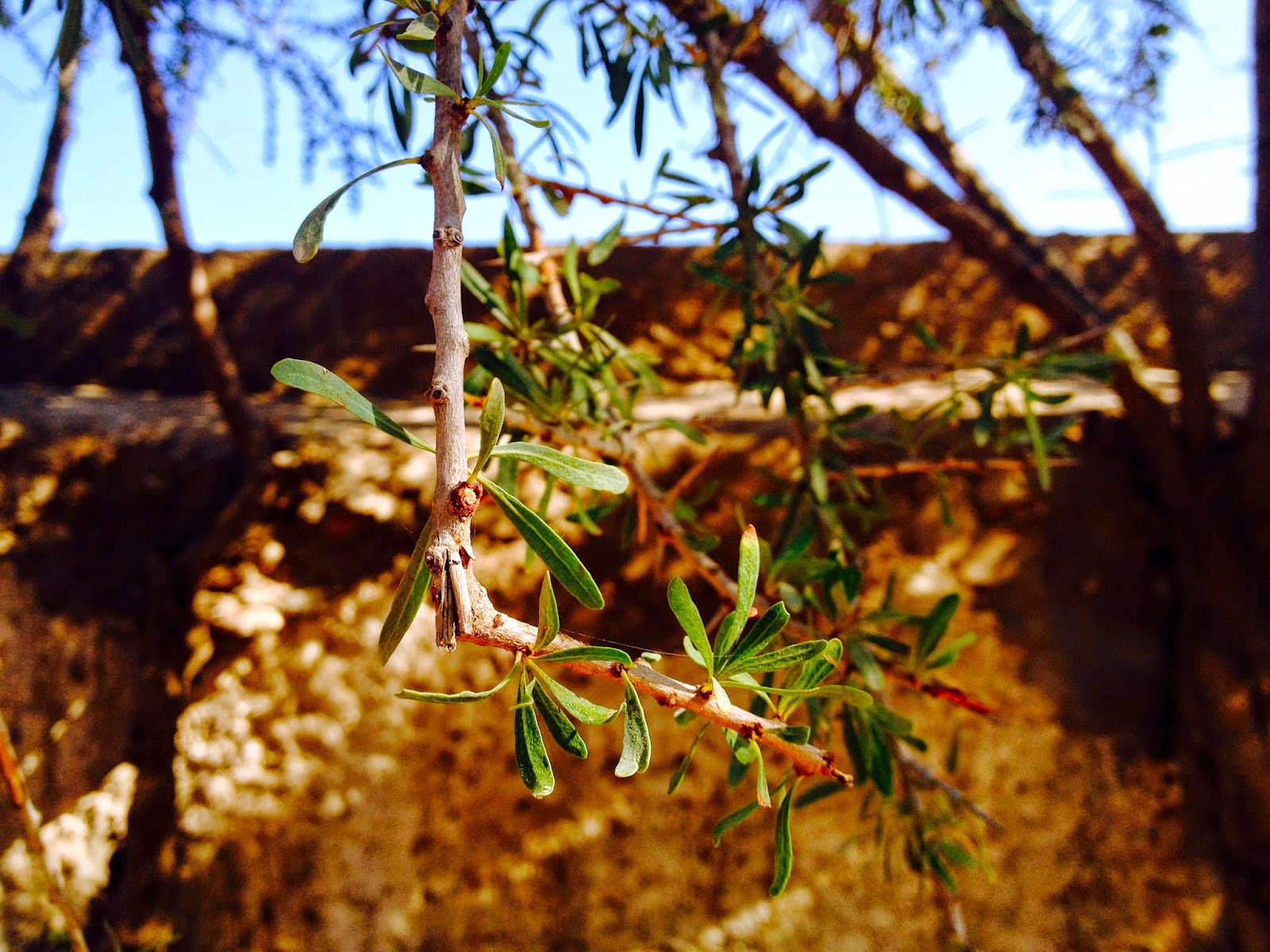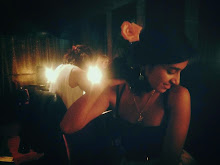Indeed, our new housemate has recently taken up residence in the shady corner of the terrace. His name is Howli which actually just means "sheep" in Darija.
Also, trigger warning, as this post will briefly contain specific details on the actual sheep-killing that will take place in the next few days.
A bit of context, this coming weekend is Eid Al-Adha, or the Feast of the Sacrifice. It is to honor Abraham's willingness to sacrifice his son Ismail as submission to God, before God then intervened with a sheep for him to sacrifice instead. It is also known as "Greater Eid" and is the second of the two major Islamic holidays during the year. Thus the past week has seen the murmurings and putterings of pre-holiday preparation. Carts of sheep lumbering around in the medina, piles of hay popping up as makeshift shops, manned by boys and young men as their vendors. My friends and I have found these temporary hay stores particularly hilarious, as their young keepers have used the opportunity to turn the hay-selling into a social event. They literally build a fort of the hay, place pillows and small couches on the inside, set up speakers playing the most recent dance hits, and lounge.
Our sheep will be killed on the terrace and then hung up on Sunday morning. Then we eat him Sunday afternoon. Almost all of him, I'm told.
For many of us on the program, the revelation that this would be an actual thing that would happen under our own roofs was quite distasteful at first. The sheep has to be held down while its throat is slit by a holy, practicing Muslim man. Then it's hung, dried, and all of its meat is prepared for the feast later that day. This, of course, takes place after three our four days of the sheep living with the family either in the house or right outside.
First words that may come to your mind? Inhumane. Gross, perhaps? I went back and forth in my mind unable to reconcile years of young vegetarianism with the idea that an actual live sheep was not only to be my temporary roommate, but then be slaughtered on the same terrace that I do my Arabic homework.
It wasn't until I heard from a friend how an Arabic teacher at our center had described the whole thing that I began to reorganize and reevaluate everything I thought. The sheep stays with you for a few days so that you can establish a connection to the animal that is being sacrificed for you. The slaughter is absolutely halal, there's no question where the meat came from or whether the animal was mistreated in life. And of course, Eid, at its core, is a celebration. The happiness, the festivity, it's surely similar to how India is during Diwali. It feels unfair of me to inject that ambience and that excitement with the negative judgement of an outsider.
“Christian, Jew, Muslim, shaman, Zoroastrian, stone, ground, mountain, river, each has a secret way of being with the mystery, unique and not to be judged.”
-Rumi
Interestingly enough, this weekend also marks the last day of Navratari. It's Dasara on Friday. And for many of my friends, Yom Kippur begins on Friday and ends on Saturday. A very faith-ful three days (please excuse the pun, I'm so sorry, it had to be done).
We've been talking a lot just in general about what it means to be culturally "something," whether that something is Hindu, Jewish, Catholic, or even Muslim, especially in the context of our future families. The general consensus seems to be that to instill common moral and values in our future children while still maintaining a cultural link to any religion we grew up with is the most ideal choice. Of course in practice this may be a lot more difficult, but the trouble is that I don't see myself being able to restrict my children to the texts and teachings of just one belief system. There are beautiful, profound teachings found in almost every book of every faith - statements on tolerance, on goodness. Who am I to say that one is better than the other simply by virtue of being in a particular text? For myself, it would simply be a disservice. For others, I simply don't have the right.
Questions like these, of faith and of love and of other things have had me examining myself as an individual, a member of the global community, and just a human. Remember the unique speck? I feel like this past month in Morocco has had me turning myself, the speck, inside out and upside down. What am I composed of aside, of course, from matter? Joni Mitchell says "stardust" and I'm bound to agree both romantically and scientifically. I feel like there is something truly cosmic about those those short moments I've been piecing together, those twilight walks in the medina, those painful bouts of unashamed laughter with Julia and Colleen, the split-second caress of the Atlantic breeze, my host-mother's effusive approval at my knowledge of singular words in Arabic. I'm tracing the constellations of my life, right here, right now.
And the experience of Eid will most likely deserve its own galaxy.










1 Comment:
From 'Dont Sweat the Small Stuff...." by Richard Carlson
"Understand Separate Realities "
While we're on the subject of being interested in the way other people
do things, let's take a moment to discuss separate realities.
If you have traveled to foreign countries or seen depictions of them in
movies, you are aware of vast differences among cultures. The principle
of separate realities says that the differences among individuals is
every bit as vast. Just as we wouldn't expect people of different
cultures to see or do things as we would (in fact, we'd be disappointed
if they did), this principle tells us that the individual differences in
our ways of seeing the world prohibit this as well. It's not a matter
of merely tolerating differences but of truly understanding and honoring
the fact that it literally can't be any other way.
I have seen an understanding of this principle change lives.
It can virtually eliminate quarrels. When we expect to see things
differently, when we take it as a given that others will do things
differently and react differently to the same stimuli, the compassion we
have for ourselves and for others rises dramatically. The moment we expect otherwise, the potential for conflict exists.
I encourage you to consider deeply and respect the fact that we are all
very different. When you do, the love you feel for others as well as
the appreciation you have for your own uniqueness will increase.
Post a Comment